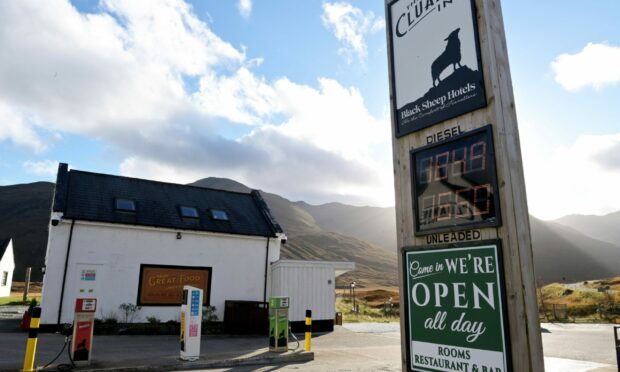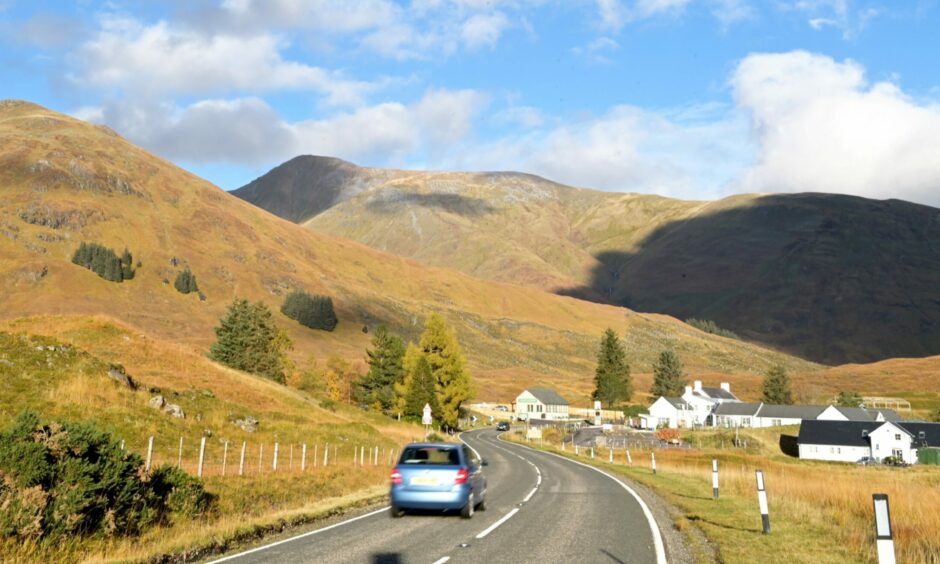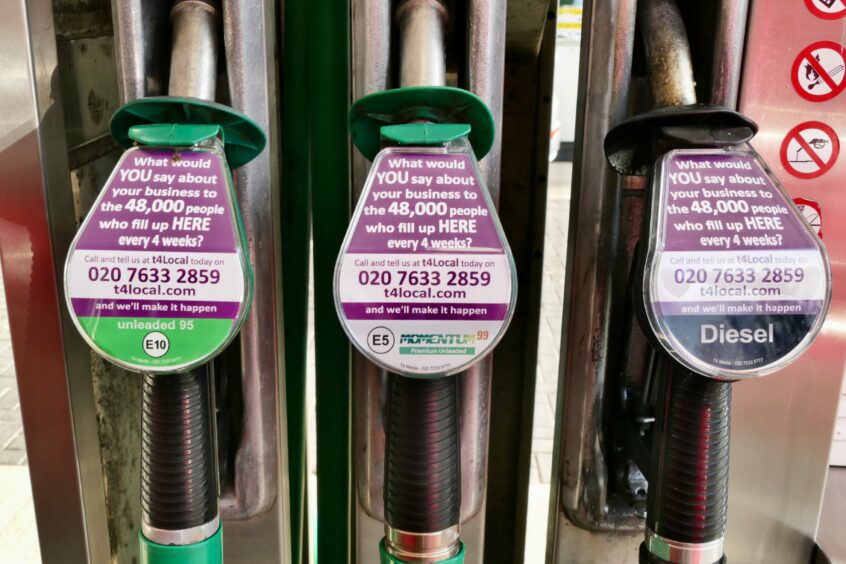A remote petrol pump in the Highlands is selling diesel at £2.13 per litre – believed to be among the most expensive on the UK mainland.
It equates to just over £9.67 a gallon – and still people queued to fill up today.
The Cluanie Inn – on the A887, the main Skye to Inverness road – was also advertising unleaded petrol at £2.08-a-litre on Wednesday.
The price of petrol saw its biggest daily jump in 17 years on Tuesday, with a rise of more than 2p a litre, according to the RAC.
Is there a price you wouldn’t pay for fuel? Let us know in the comments below
‘We don’t make any profit on fuel sales’
The Cluanie Inn has said that its fuel prices were based on its remote location, the cost of transporting petrol and diesel to the site, and that it relied on a diesel generator to power the pumps and point of sale machine 24/7.
“We do not make any profit out of the fuel sales,” Vanessa Crasto, vice president of parent group Black Sheep Hotels, has maintained.
“It is more a service we provide. There is no other fuel pump for many miles and we keep ours open 24/7 as a service. The Cluanie Inn has no (mains) electricity. It relies on the diesel generator.”
The Cluannie Inn was among those bought by an Indian businessman two years ago after he felt so let down by Highland hospitality he decided to purchase the offending hotels to ‘show them how it should be done’.
AA calls for further fuel duty car
This week the Press & Journal surveyed petrol stations along the length of King Street in Aberdeen.
We found a huge variance in prices ranging from £1.97 per litre for unleaded at the Shell to £1.75 at the Morrisons.
The diesel price of £1.95 at the Shell had jumped by a massive 35p per litre since March 29.
Fuel price increases across the country have led to the AA calling on the UK Government to cut fuel duty by a further 10p per litre – in addition to the existing 5p reduction.
It comes as it now costs more than £100 to fill up the tank on a standard family-sized car.
AA president Edmund King said: “Enough is enough. The government must act urgently to reduce the record fuel prices which are crippling the lives of those on lower incomes, rural areas and businesses.
“A fuel price stabiliser is a fair means for the Treasury to help regulate the pump price but alongside this they need to bring in more fuel price transparency to stop the daily rip-offs at the pumps.
“The £100 tank is not sustainable with the general cost of living crisis so the underlying issues need to be addressed urgently.”



Conversation